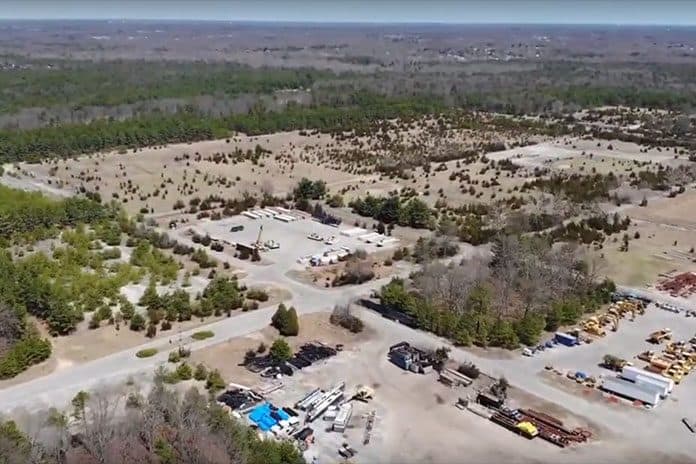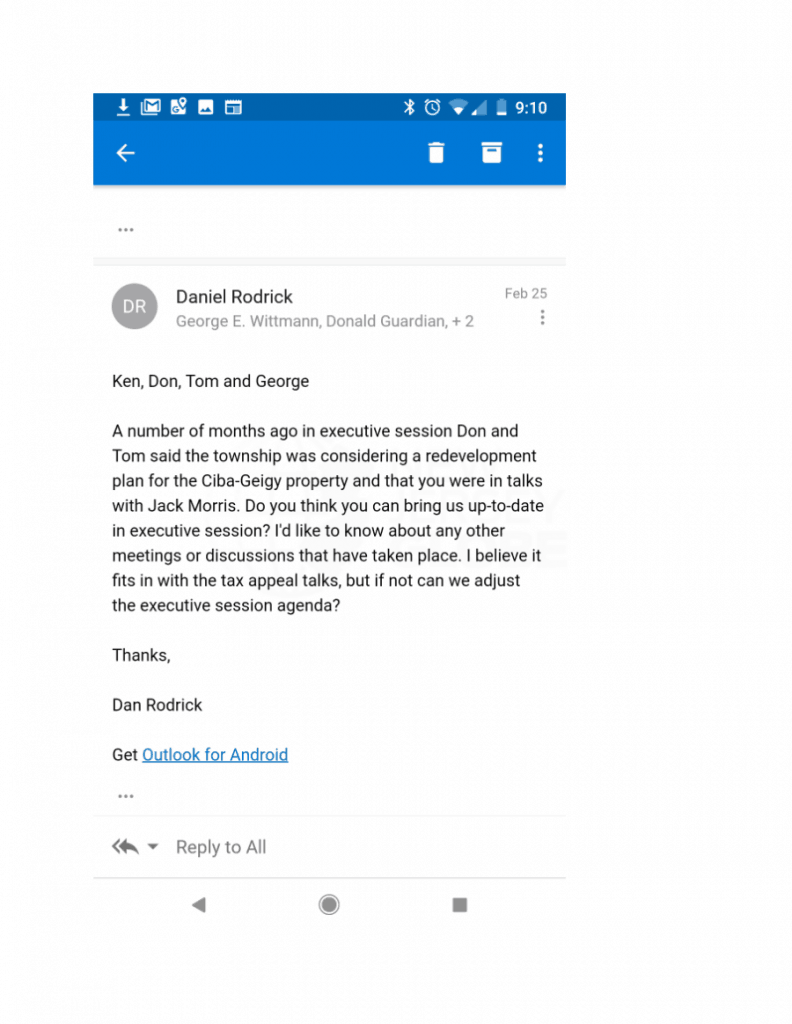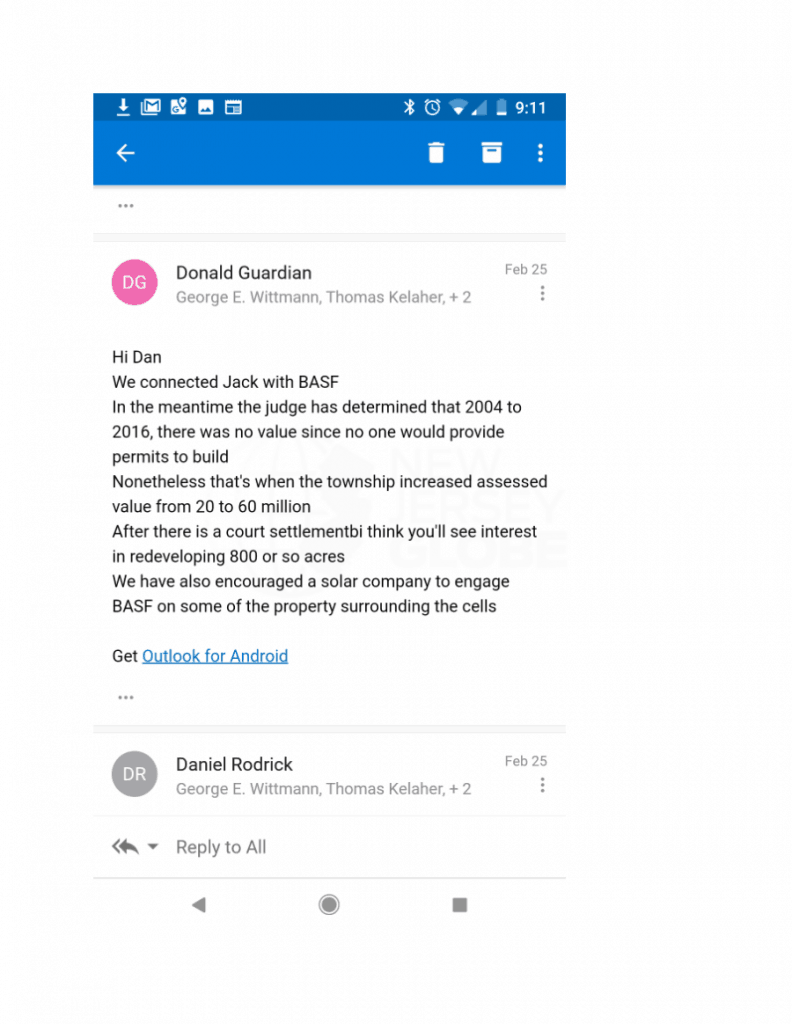
TOMS RIVER – The Ciba-Geigy property has been many things in Toms River. Decades ago, it started out as a welcome employer. Then, as people realized what the dye company’s pollution was doing, it became a scourge on the area. It’s now been dragged into the 2019 mayoral election.
Very little is going on there now except testing and environmental remediation. But it’s the future that people are concerned about.
Councilman Daniel Rodrick has spoken out against future residential development on the site, citing emails he had with business administrator Don Guardian. In the exchange, Rodrick asked about the town’s redevelopment plan for the land, and whether developer Jack Morris was part of any negotiation.
Guardian responded “We connected Jack with BASF.” BASF is the current owner. He discussed the current litigation regarding how much the property is assessed at, then continued: “After there is a court settlement I think you’ll see interest in developing 800 or so acres. We have also encouraged a solar company to engage BASF on some of the property…”
Rodrick has put out campaign information suggesting that as many as 6,400 homes could be built on that land. This is not a plan in the works. Rather, this number comes from his own calculations based on how many units could be built there, given the rate of growth in the northern section of town neighboring Lakewood.
Rodrick, a Republican, is running for mayor. He is competing against Councilman Maurice Hill and former Ocean County Prosecutor Joseph Coronato in the primary in June. The winner will face off against Democrat Jonathan Petro in November.

Current Mayor Thomas Kelaher is not running for re-election, but sent a comment to media to counter Rodrick’s claims, calling them fear-mongering lies.
“The truth is that there are not – and have never been – plans for the Township of Toms River, or any public or private entity, to develop the Ciba site for any purpose,” Kelaher’s statement read. “The property is zoned solely for industrial use, and federal and state environmental laws would preclude any such development. The property is still undergoing a government-mandated clean-up, and the Township is currently in a protracted litigation with Ciba’s successor company, the German industrial giant BASF, involving over a dozen years of tax appeals. Because of that ongoing litigation, the Township is precluded from even communicating with BASF.
“Simply put, the development Councilman Rodrick speaks of in his sham campaign cannot – and will not – happen,” he wrote. “Desperate politicians often do and say desperate things, but to exploit this painful episode in Toms River’s history for political purposes is sick and self-serving. Councilman Rodrick’s shameless deception shows nothing more than he has neither the character, competence, nor conscience to serve in any elected capacity, let alone as mayor of Toms River.”

Rodrick countered Kelaher’s statement, saying that Kelaher’s denial in the face of the emails are reminiscent of the covering up Ciba did in the past.
“It’s in writing that they want to develop this,” he said. “Kelaher has a horrendous record and the development of north Dover is his legacy. How can we trust him when this is in writing?”
As detailed in Dan Fagin’s Pulitzer-winning book Toms River, Ciba was one of two locations suspected of being the cause of a cancer cluster in town. The other was the Reich farm off Route 9. Neither of these locations, Fagin wrote, could accurately be proven to be the cause of the cancer cluster in Toms River. Further, the scientific definition for a cluster was not met, although it’s possible that the science was not able to prove it yet.






